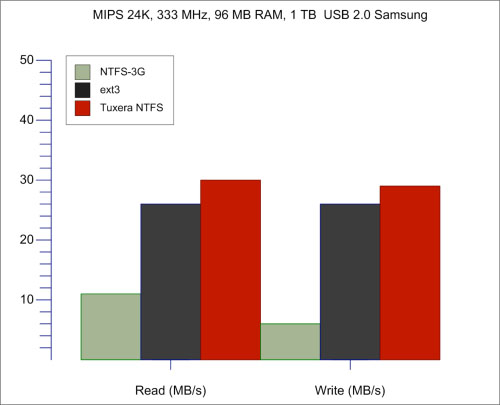
NTFS-3G is a stable, open source, GPL licensed, POSIX, read/write NTFS driver for Linux and many other operating systems. It provides safe handling of the Windows XP, Windows Server 2003, Windows 2000, Windows Vista, Windows Server 2008 and Windows 7 NTFS file systems. NTFS-3G can create, remove, rename, move files, directories, hard links,.
- Ntfs-3g-2010.8.8-2.fc13 has been pushed to the Fedora 13 stable repository. If problems still persist, please make note of it in this bug report. Comment 17 Fedora Update System 2010-09-17 18:30:33 UTC.
- The topics:. Stable NTFS-3G 2010.5.22. NTFS-3G 2010.6.31-RC Release Candidate. NTFS-3G for Mac 2010.5.22. Tuxera NTFS for Mac 2010.6-RC Release Candidate - The stable NTFS-3G 2010.5.22 release is a minor update which addresses creating the missing usermap and secaudit utilities.
- 自ntfs-3g-2010.8.8版開始可對已有經過透明壓縮的檔案的修改操作。 2011年4月12日,宣佈ntfsprogs專案合併至NTFS-3G。 類似軟體. Tuxera NTFS及NTFS for Mac —— NTFS-3G的商用版,內含一些對存取效能有提升的專有元件.
- Report Unresolved Customer Service Issues here I do not work for Dell. I too am a user. The forum is primarily user to user, with Dell.
The lore I found while googling is that cfq is the best I/O scheduler to use for HDDs. I was therefore under the preconception that cfq was best for HDDs, but you can see in the data that is NOT the case under most of the tested situations.
Experiment design
Iozone was used via the following script to evaluate the effect of different I/O schedulers on a single HDD system (standard workstation). In all, the three standard I/O schedulers were used (cfq, deadline, and noop) under 1, 2, or 3 threads (that is, 1, 2, or 3 writer apps). Since the machine has 8 GB of physical memory, the test file size was chosen to be a little beyond this @ 8.3 GB to prevent actions from going into page cache. The max size of the buffer on this HDD is 16,384 bytes so that is the value chosen for the transfer size. Note that I setup this expeirment in consultation with Don Capps one of the iozone devs.
Test system details
Intel X3360 CPU under Arch x86_64 (linux-3.0-2 package) with an up-to-date system as of 31-July-2011
Mobo is an Intel P45-based one w/ 8 G of RAM.
The HDD used for the tests is Seagate 31000528AS with AHCI and NCQ enabled.
I did the benchmarks writing to the 2nd partition (about 80 G into the disk) which was formated to ext4 and mounted with the Arch defaults +noatime.
Ntfs-3g Options

Data
Note that I just ran this set with an n=1; the reported values do not have error bars. This raises questions about where one can statistically differential between close results. I will re-reun the entire benchmark 3 times tonight, and average the results. Where appropriate, I will indicate the standard error on the graphs to show statical significance. Stay tuned...
Mixed workloads
Read tests
Write tests


Ntfs-3g Big_writes
Conclusion
In general for systems with similar specs, either noop or deadline give superior results to cfq for both mixed workload and write scenarios. In general, cfq gives slightly better results for heavy read scenarios. I switched over to noop after running this experiment given my typical system usage. I think this is a reflection that, for this HDD anyway, the onboard queuing via NCQ does a better job than the ones in the linux kernel. Hope others find this insightful!
Ntfs-3g Source
Last edited by graysky (2011-08-01 18:59:14)